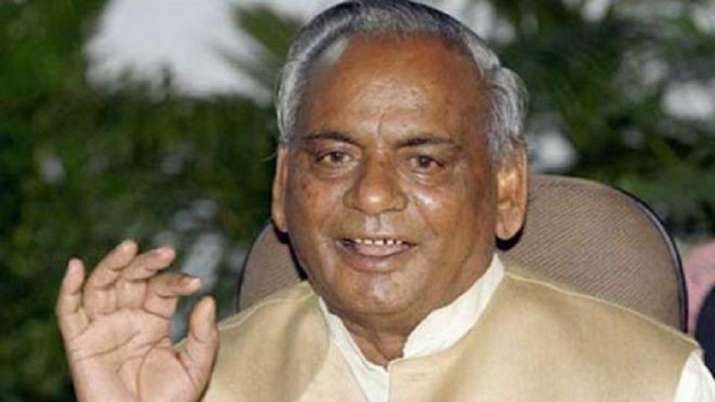‘He acted as a bridge between the non-Yadav OBCs and BJP which was till then believed to be a Brahmin-Baniya party’.
New Delhi: With the death of Kalyan Singh, a two-time chief minister of Uttar Pradesh, the Bharatiya Janata Party (BJP) had lost a leader who was instrumental in bringing the Other Backward Classes (OBCs) in its fold. Singh, who died at the age of 88, had dominated the BJP’s electoral politics in the politically crucial state of Uttar Pradesh, which sends 80 members to the Lok Sabha, for more than 15 years. Despite being the chief minister for hardly three years, between June 1991-December 1993 and September 1997-November 1999, his tenure marked a paradigm shift in Indian electoral politics with the BJP becoming a central player in the cow belt.
Manindra Nath Thakur, a noted political scientist who teaches at the Centre of Political Studies under the Jawaharlal Nehru University in New Delhi, said: “He consolidated the Hindutva ideology within the OBC community for the BJP which led to the massive penetration of the party among the non-Yadav OBCs in Uttar Pradesh; he acted as a bridge between the non-Yadav OBCs and the BJP which was till then believed to be a Brahmin-Baniya party. Kalyan Singh prepared the ground for Yogi Adityanath and other leaders to reach the seat of power in Uttar Pradesh as he proved that the BJP is not untouchable for non-Yadav OBCs and hence the party was able to form a Upper caste and Non-Yadav OBC alliance in future.”
Born in the Madhauli block of Aligarh, Kalyan Singh joined the Rashtriya Swayamsevak Sangh (RSS) at an early age when he was in school. He won his first Vidhan sabha election in 1967 from Atrauli constituency on a Bharatiya Jan Sangh (BJS) ticket. Between 1967-2004, he won eight Assembly elections barring 1980 and was a leading voice of the erstwhile Jan Sangh and today’s BJP in the state assembly. Little is known about his administrative functioning as everything had been overshadowed by the Babri Masjid episode of 6 December 1992. During submitting his resignation as the CM after the demolition of the structure, Singh controversially asserted that he was ready to forsake power again and again for the sake of Ram Lalla and when the Supreme Court sentenced him for one-day imprisonment for failing to protect the structure, he called it as a badge of honour.
As per his administrative decisions and functioning was concerned , the Anti-copying Act brought by his government changed the state education system during the 1990s and damaged the mafias working in the education sector. The pass percentage came down to around eight percent due to this stringent rule. He twice left his parent party, once around 2000 and once before the 2009 parliamentary election when he joined his arch rival Mulayam Singh Yadav’s Samajwadi Party. But he returned to the BJP before the 2014 Lok Sabha polls. Social scientists and those who deeply study the politics of the BJP believe that Kalyan Singh was the poster boy of the Sangh parivar’s broader Hindu consolidation strategy.
Satish Kumar Jha, a noted social scientist who teaches political science in the University of Delhi, said: “Kalyan Singh played an instrumental role in strengthening the broad Hindu consolidation for the Sangh parivar. When L.K. Advani started the Ayodhya rath yatra, many felt that it would be very difficult to stop the BJP, but when Vishwanath Pratap Singh implemented the Mandal report, it seemed that the whole exercise of social unity among the Hindus by the Sangh parivar had suffered a major jolt, but they recovered ground very fast through Kalyan Singh, as by projecting and making a non-Yadav OBC as their chief minister in the politically crucial state of Uttar Pradesh, the mandal politics of so-called socialist parties were weakened by the BJP. Kalyan Singh’s selection was not accidental but a very thought out strategy by the Sangh parivar as the non-Yadav OBCs joined the BJP and the Hindutva ideology in large numbers after this.”

